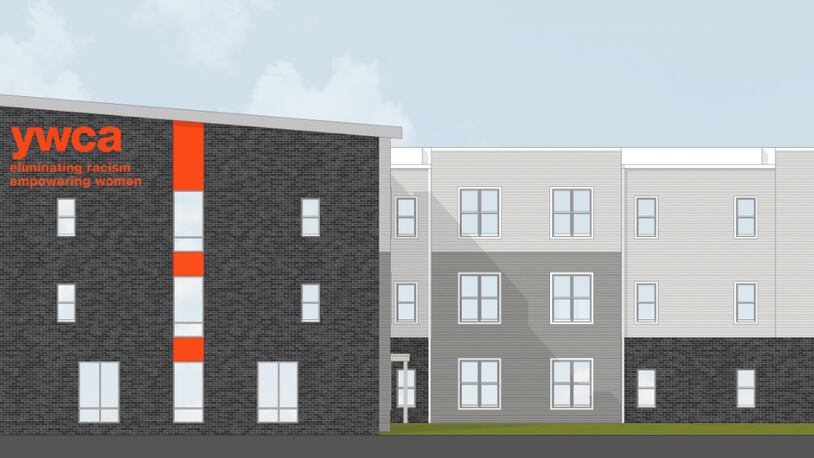CEO Wendy Waters-Connell told the Journal-News it couldn’t have come at a better time, given the impact of the coronavirus pandemic.
“During the pandemic we have had a double to triple the number of crisis hotline calls,” she said. “The injuries are more severe that we’re seeing in the domestic violence shelter, things like strangulation and broken bones. So the stress is clearly having a direct impact on the frequency and severity of the injuries of our survivors.”
The YWCA also received $9 million in low-income housing tax credits. Waters-Connell said the city of Hamilton pledged $300,000 and the Ohio Department of Mental Health and Addiction Services agreed to give $500,000.
“I think it is testimony to their support of our mission and their understanding that especially following a pandemic the need for domestic violence survivor support will grow over a long period of time,” she said.
Waters-Connell said the YWCA has 31 one-bedroom efficiency apartments in the historic building on Dayton Street in Hamilton. The new facility will have 45 apartments with kitchens. Waters-Connell said there is a huge need for this shelter but adding onto the existing building wasn’t possible.
The campus also has room for supportive services including case management, support groups, individual counseling and psychiatry to tackle problems like addiction and mental illness; transportation; employment and job skills training.
Commissioner Don Dixon originally had some qualms about the land-locked location for the campus on Grand Boulevard because there is no room to expand. Earlier this year, before the coronavirus impact, he said he also wanted to see a more comprehensive solution to the dearth of housing for the needy. Now he supports the plan.
“I’d have liked to see a different location but I understand it, those things are hard to get located, that type of facility,” he said. “And the economy certainly has put more emphasis on that there’s going to be a lot more demand for that service. So it’s just a matter of providing services that are to the point where you just have to do something, a little step.”
Few details were available when the YWCA submitted its HOME grant application to the county in November, so it was not recommended for funding by the county’s consolidated planning committee for HUD funds. The commissioners received requests for $5.1 million in Department of Housing and Urban Development (HUD) funding for 39 projects to benefit low- and moderate-income residents. The bulk of those, totaling $2.9 million, were applications for Community Development Block Grant funding, and the rest came in HOME Investment Partnerships Program requests.
In April the commissioners approved $1.25 million for CDBG projects and programs and $1.35 million in HOME funds for new housing, down payment assistance and some rehab work. Included in the approval was $475,000 in unspecified funding where the YWCA project and a couple others were parked.
About the Author
